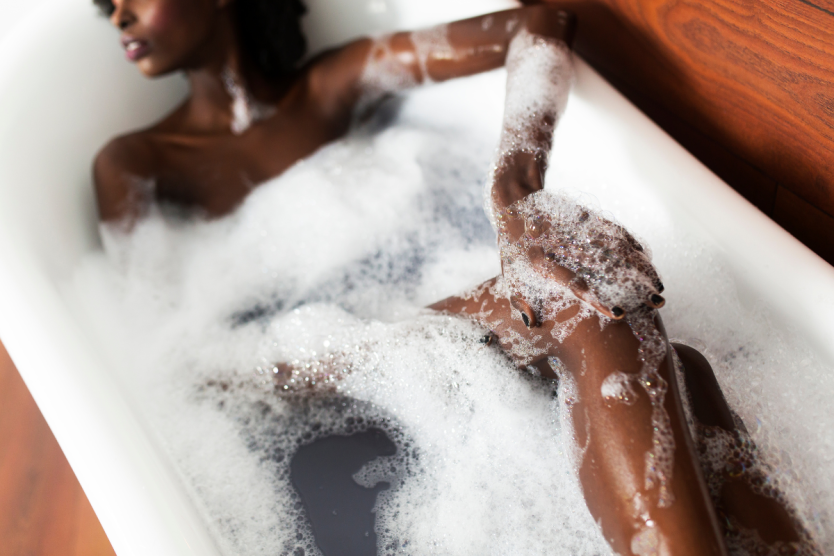Living with interstitial cystitis can be frustrating, with uncertainty about the cause and any possible cure.
Without answers to those questions, you still want to feel better. Are there ways how to improve the symptoms of interstitial cystitis? Let’s take a look.
Living With Interstitial Cystitis
We all know that feeling, when it’s time for a trip to the bathroom to pee. But imagine if the signals in your body get mixed up, and you end up going to the bathroom up to 60 times a day. Frequent urination, often of small amounts, throughout the day and night, is just one of the stressful symptoms of interstitial cystitis.1
This chronic condition also causes bladder pressure, bladder pain and sometimes pelvic pain, ranging from mild discomfort to severe pain. The condition is a part of a spectrum of diseases known as painful bladder syndrome.1
What Causes Interstitial Cystitis?
Most people get a signal from their bladder—the hollow, muscular organ that stores urine—to the brain when it’s full. This signal through the pelvic nerves creates the urge to pee. People with interstitial cystitis have mixed up signals, so they feel the need to urinate more often and with smaller volumes of urine than most people.1
Other symptoms include:1
- Chronic pelvic pain
- Pain or discomfort while the bladder fills and relief after urinating
- Pain during sex
Interstitial cystitis most often affects women and can have a long-lasting impact on quality of life. Although there’s no cure, medications and other therapies may offer relief.1 As well, there does not seem to be one treatment that works for everyone, so often treatments look to relieve symptoms in each person on an individual basis. Treatment plans may include lifestyle changes such as bladder training or seeking relief through physical therapy.2
How To Improve The Symptoms Of Interstitial Cystitis
A chronic condition like interstitial cystitis, also known as bladder pain syndrome, has an impact on your everyday life. You might limit your social life, and you’ll likely feel stress. Physical and mental stress can lead to flare-ups of IC, so understanding stress and how you can minimize it may help limit the intensity of your flare-ups.3
Consider ways that work for you to deal with stress, which could be as simple as a hot bath or a meditation session. Exercise can help, but try not to put too much pressure on your bladder with vigorous exercise, which can make your symptoms worse.3 Evidence continues to show that being in nature provides benefits that include reduced stress, so a walk through a city park or in the wilderness is one way to improve your mood.4
Changes to your diet may relieve symptoms too. Try keeping a record of what you eat, and note what causes flare-ups of your IC. Eliminating certain foods, such as those that are acidic or spicy, may decrease the severity of IC symptoms.5
Your doctor may also work with you on a treatment plan that includes:
- Physical therapy: A pelvic floor physical therapist can teach you exercises to stretch and relax your pelvic muscles, which may help reduce IC symptoms.6
- Bladder retraining: This method helps overcome the habit of using the bathroom when your bladder isn’t full, helping you hold your pee for longer periods.6
- Oral medications: Some medications may help symptoms, such as heartburn medication to reduce the amount of acid in your body, a low dose of antidepressant to reduce pain and reduce urinary frequency, or an antihistamine, since it’s believe that histamine in your body may cause IC symptoms.6
There are other surgical and medical treatments that may be explored too, such as nerve stimulation. Before jumping to the idea that you need surgery, work with a doctor to explore other methods to improve the symptoms of interstitial cystitis.
Get a Diagnosis
The first step in determining how to relieve the symptoms of Interstitial Cystitis is to see a doctor. In particular, if you’re experiencing urinary urgency and frequency, and/or chronic bladder pain, see a health care provider for diagnosis.1 Use our Physician Finder to find a doctor near you with expertise in women’s health, who can help with a treatment plan to relieve your symptoms of IC.




















